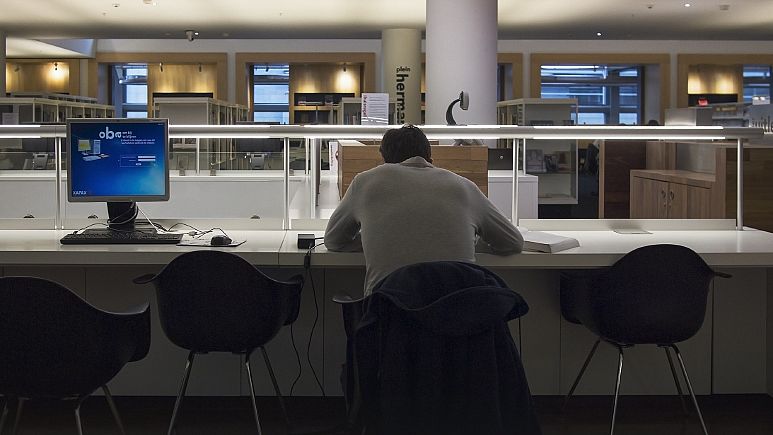COVID-19 pandemic is the 'perfect excuse to adopt four-day work week'
by Natalie Hueteuronews_icons_loading

If you need to hike your caffeine intake come Friday morning to kick your brain into gear, you’re not alone.
Now how about only enjoying that coffee – and not working afterwards?
For countless companies around the world, COVID-19 has spelt economic disaster and thrown millions of people out of their jobs.
But one campaign group says the coronavirus pandemic is the ideal opportunity to rethink work patterns to boost economies and improve overall wellbeing – and that now is the time to ditch the five-day, 40-hour workweek.
"COVID gives us the perfect excuse to really look at what is the future of work. It's a dreadful thing that we're going through. But the exciting thing of it is that we can reinvent the workplace," Charlotte Lockhart, CEO of 4 Day Week Global, told Euronews.
What was once a fringe idea now seems to be gaining momentum.
New Zealand has had one of the world's most successful responses to the coronavirus pandemic, but its economy still took a major hit. Now Prime Minister Jacinda Ardern is backing the idea of a four-day workweek to help boost domestic tourism while improving work-life balance.
"I hear lots of people suggesting we should have a four-day workweek. Ultimately, that really sits between employers and employees. But (…) there’s lots of things we’ve learnt about COVID and that flexibility of people working from home, the productivity that can be driven out of that," Ardern said in a Facebook live video this month.
Fewer hours, better productivity?
When Microsoft tried out a four-day workweek at a subsidiary in Japan last year, it reported a 40 per cent productivity increase. The experiment was part of a project examining work-life balance and its effect on productivity and creativity.
France’s 35-hour workweek, introduced two decades ago, is famously one of the shortest in Europe. Introduced by Socialist Prime Minister Lionel Jospin to cut unemployment. It has fed into a stereotypical image of a nation of slackers, but the country regularly comes ahead of the rest of the world in terms of productivity.
While it’s slightly lower than in the United States and has been slowing down in recent years, GDP per hour worked in France is about 25 per cent higher than in the rest of the European Union and across the world’s other richest countries, according to OECD data.
Lockhart says the dismal economic outlook makes the idea of a shorter working week even timelier, when "the focus on productivity is more important than ever".
"Human nature is that we can't work fully on for 37 or 40 hours a week," she said.
"What we advocate for is that if you encourage your staff to find those gaps in their day and then get rid of them so they can have time off, you find that your company will get a minimum of 20% more productive."
Keeping us focused
The fact we live in a hyper-connected era, and more people are finding it hard to switch off from work, is precisely why Lockhart thinks the 40-hour workweek isn't working for us anymore.
"When it was first instituted, we didn't have smartphones, and email and all of those disruptions and so we actually have to create some discipline," she said.
Weeks-long coronavirus lockdowns have forced millions of parents to juggle between looking after their children and trying to work from home at the same time – battling constant interruptions and scheduling work around nap times.
"The difference we've had during the COVID lockdown, of course, is we've had to educate our children at home at the same time. But if we were to look at a flexible and remote working solution that suits most businesses, I think we'll find that the productivity will go through the roof," Lockhart said.
You can watch excerpts of the interview in the video player above. How do you feel about work patterns in the age of COVID-19? Share your thoughts in the comments section.